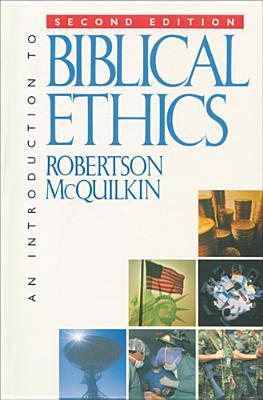Anyone who is looking for a solid treatment of Christian ethics which is viewed through the lens of the Ten Commandments, and applied to our modern world, will not be disappointed by this volume. Robertson McQuilkin has done a tremendous service to the church by providing a book that covers a lot of terrain and does so in a very readable style.
No better description can be provided of the book than that which is given by Kenneth S. Kantzer on the backside of this book's cover: "(McQuilkin) discusses the issues of our relation to God, sex, marriage, family, home, human life, race, abortion, infanticide, suicide, suicide, euthanasia, war, crime and punishment, labor and management, work and leisure, private property, perjury, lying, church and state, the role of government, education of our children, and the ethical responsibility of the public media. Each is dealt with honestly in the complex way we meet it in real life."
Two features of the book that I especially appreciated were the frequent references to Scripture, and a list of books for recommended reading at the end of each chapter.

